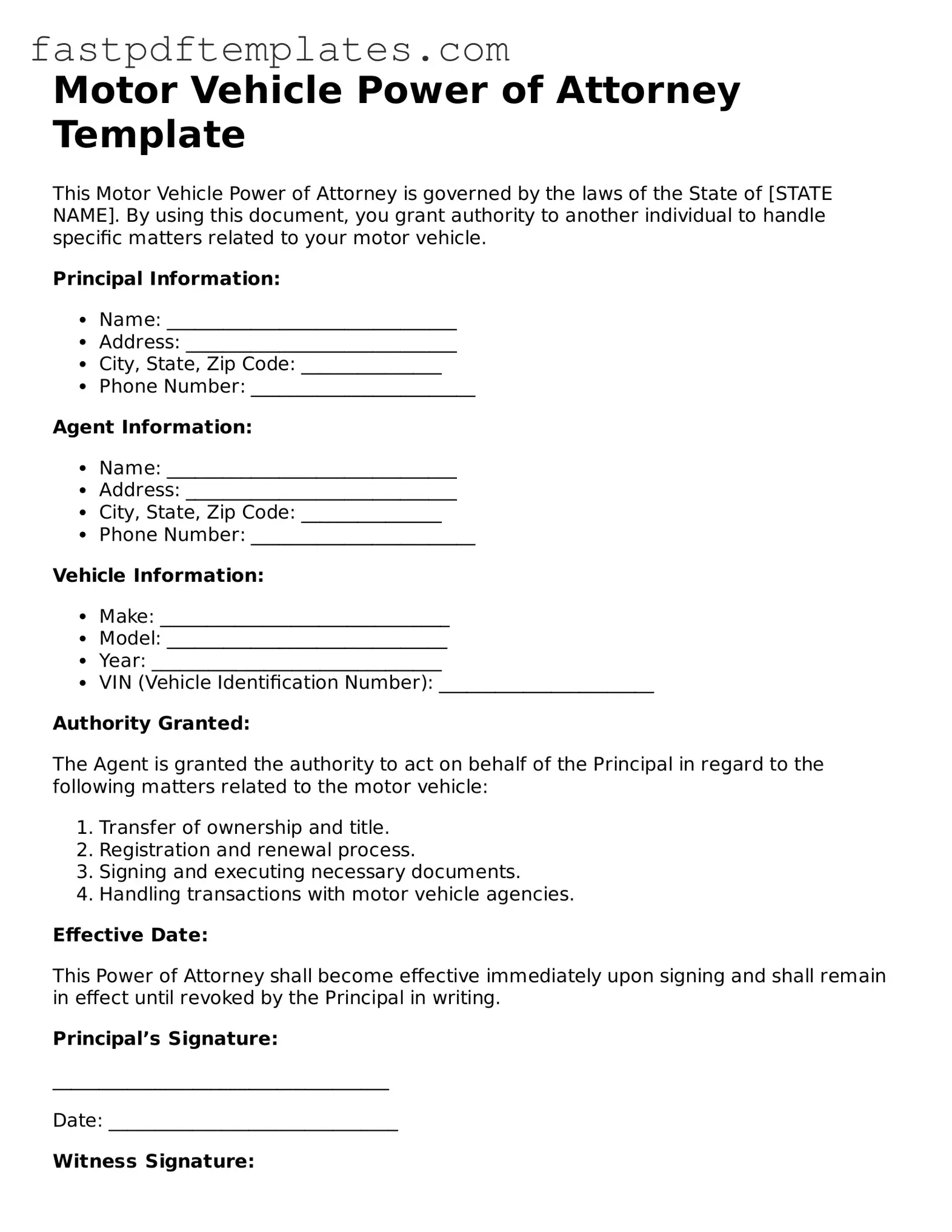Fillable Motor Vehicle Power of Attorney Document
The Motor Vehicle Power of Attorney form is a legal document that allows one person to authorize another to act on their behalf regarding motor vehicle transactions. This form can be crucial when you need someone to handle the sale, transfer, or registration of a vehicle while you are unable to do so. Understanding its purpose and how to complete it can simplify your vehicle-related matters.
Access Document

Fillable Motor Vehicle Power of Attorney Document
Access Document
Your form still needs completion
Complete your Motor Vehicle Power of Attorney online and download the final PDF.
Access Document
or
Click for PDF Form
